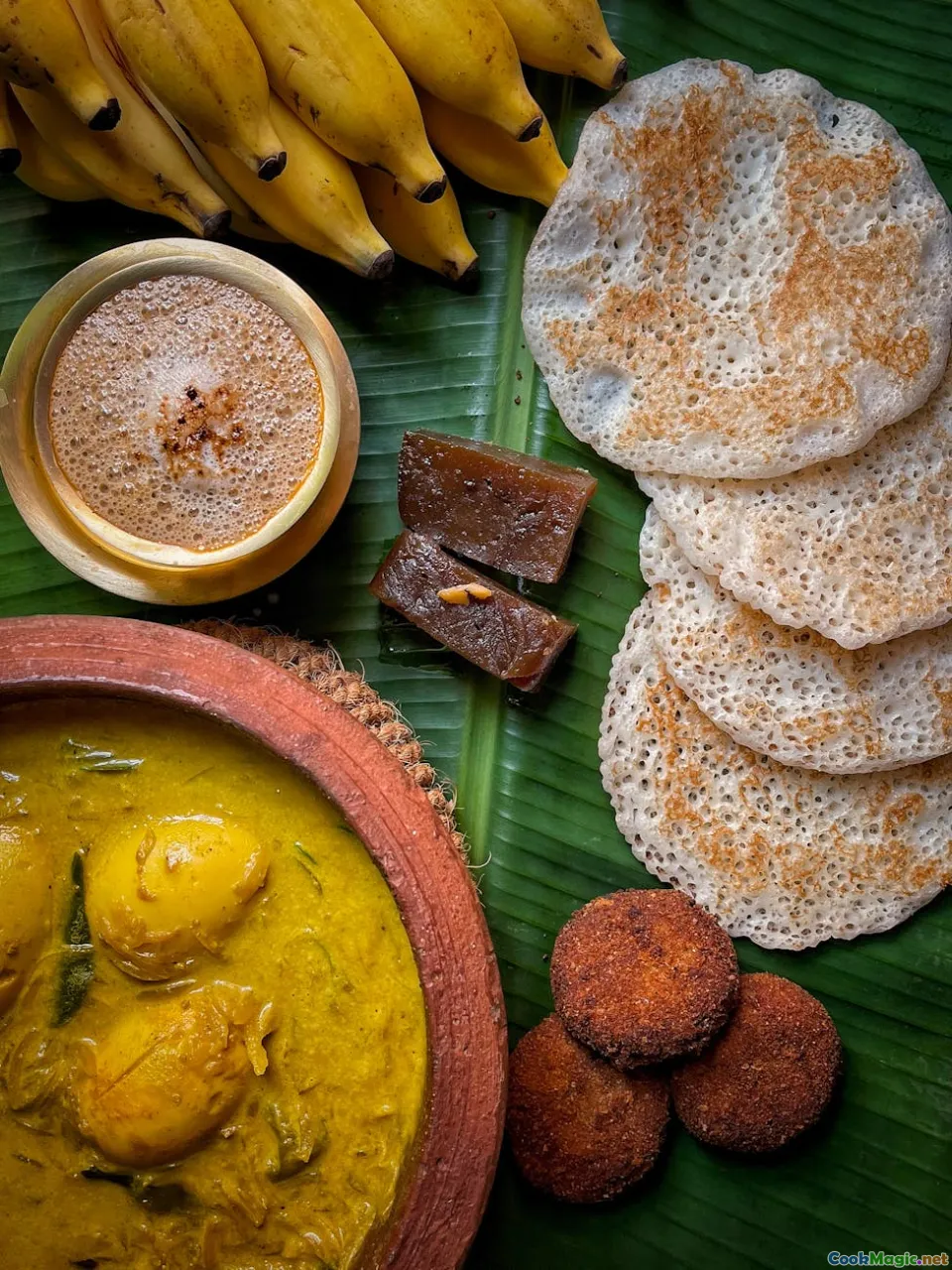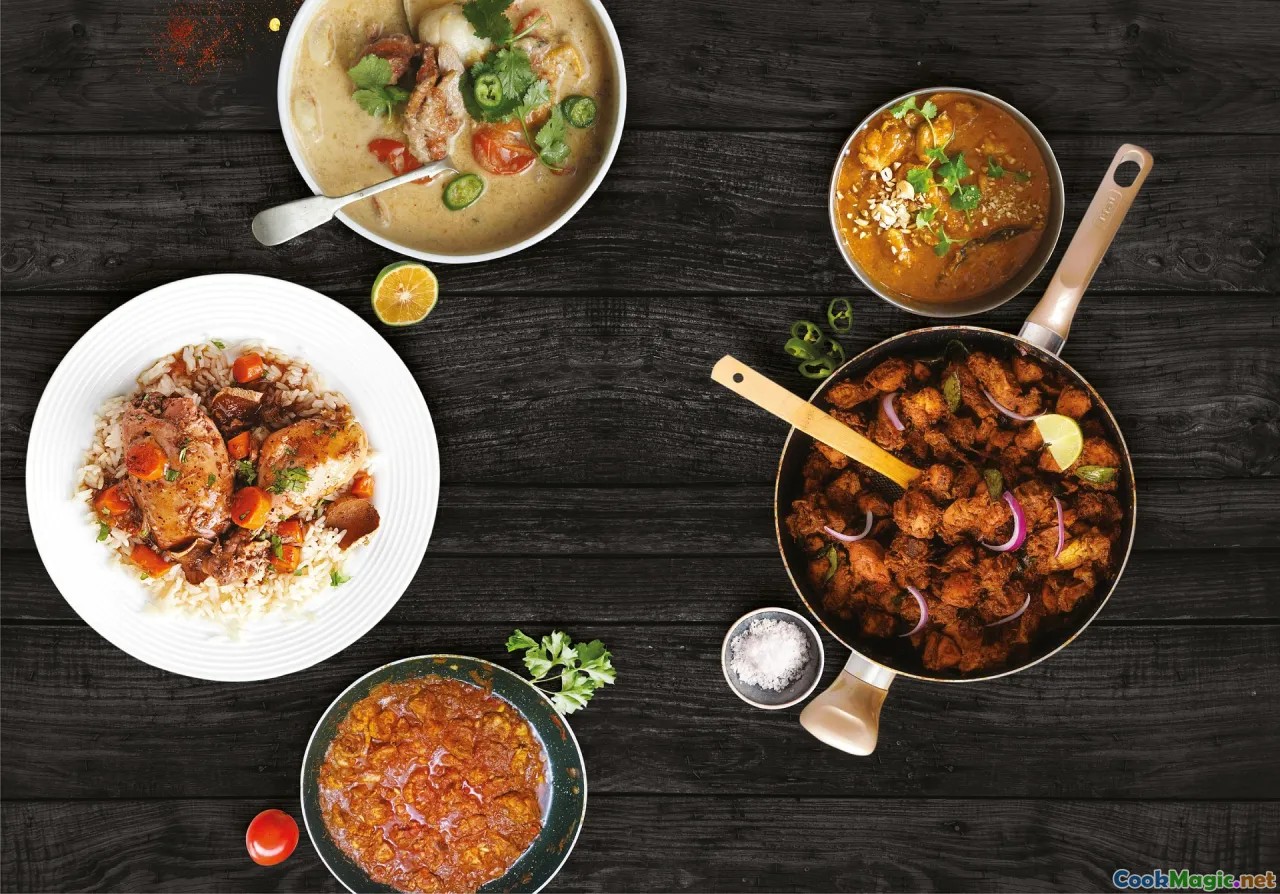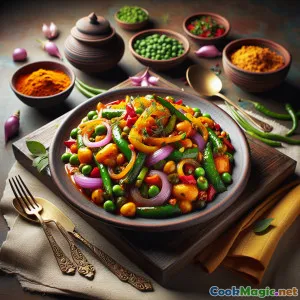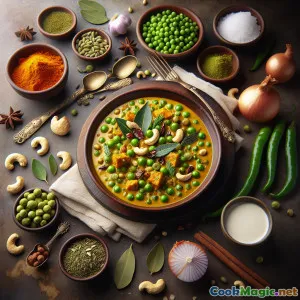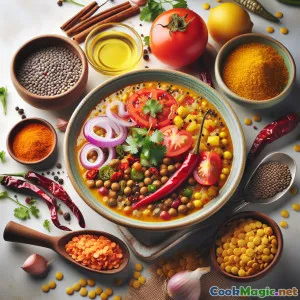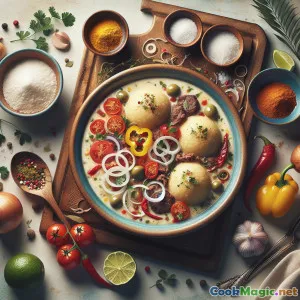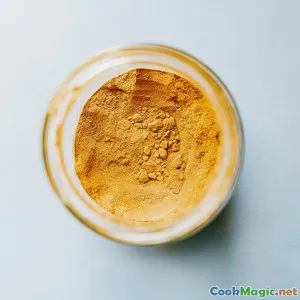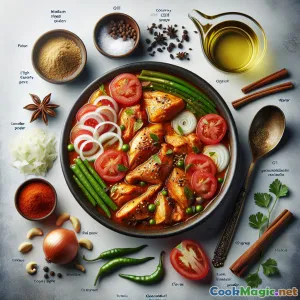
Eksplozja Kurmy z Wiejskiego Kurczaka w Stylu Erode
(Erode Style Country Chicken Kurma Explosion)
(0 Recenzje)0
927
sierpień 11, 2025
Zgłoś problem
Składniki
-
800 grams Kurczak wiejski (nattu kozhi), pokrojony na średnie kawałki
(Skin removed, cleaned; Free-range preferred)
-
2 large Cebula, cienko pokrojona
(Shallots can be used for deeper flavor)
-
2 medium Pomidor, posiekany
-
100 grams Świeżo starty kokos
(Or use unsweetened desiccated coconut)
-
3 pieces Zielone papryczki chili, pocięte wzdłuż
(Dostosuj w zależności od poziomu przypraw)
-
2 tablespoons Pasta imbirowo-czosnkowa
(Prefer fresh homemade paste)
-
2 teaspoons Proszek kolendrowy
-
1 teaspoon Czerwony Pieprz Mielony
(Or slightly smoked chili for depth)
-
0.5 teaspoon Proszek Kurkumy
-
4 pieces goździki
-
2 inches Laska cynamonu
-
1 teaspoon Nasiona kopru włoskiego
-
1 piece Anyż gwiaździsty
-
15 leaves Liście curry
-
2 tablespoons Świeże posiekane liście kolendry
(Do dekoracji)
-
4 tablespoons Olej (najlepiej z orzeszków ziemnych/gingelly)
-
400 ml Woda
(Adjust for desired gravy consistency)
-
1.5 teaspoons Sól
(Do smaku)
-
8 pieces Nerkowce
(For grinding with coconut)
-
1 teaspoon Sok cytrynowy
(For final tang)
(Skin removed, cleaned; Free-range preferred)
(Shallots can be used for deeper flavor)
(Or use unsweetened desiccated coconut)
(Dostosuj w zależności od poziomu przypraw)
(Prefer fresh homemade paste)
(Or slightly smoked chili for depth)
(Do dekoracji)
(Adjust for desired gravy consistency)
(Do smaku)
(For grinding with coconut)
(For final tang)
Wartości odżywcze
- Porcje: 4
- Wielkość porcji: 1 miska (250g)
- Calories: 485 kcal
- Carbohydrates: 11 g
- Protein: 37 g
- Fat: 30 g
- Fiber: 3 g
- Sugar: 4 g
- Sodium: 990 mg
- Cholesterol: 97 mg
- Calcium: 83 mg
- Iron: 2.6 mg
Instrukcje
-
1 - Prepare the Coconut Paste:
Grind fresh grated coconut together with cashew nuts (if using) and a splash of water to a smooth paste. Set aside.
-
2 - Marinate the Chicken:
Rub salt, turmeric, half the ginger garlic paste, and a pinch of red chili over the country chicken pieces. Allow to marinate while you prep other ingredients.
-
3 - Sauté Whole Spices & Aromatics:
Heat oil on medium flame in a large, thick-bottomed vessel. Add fennel seeds, cinnamon, cloves, and star anise. Once aromatic, add onions and curry leaves; sauté till golden brown.
-
4 - Develop the Masala:
Add ginger garlic paste and green chilies, stir until raw smell fades. Add chopped tomatoes. Sauté till tomatoes turn soft and release oil.
-
5 - Layer in Powders & Chicken:
Add coriander powder and remaining chili powder, fry gently. Add the marinated chicken, sauté for 6–7 minutes till the edges are sealed and coated well.
-
6 - Cook the Chicken:
Pour water and bring to a boil. Reduce flame, cover and simmer for 15–20 minutes or until chicken is tender. Stir occasionally and check seasoning.
-
7 - Finish with Coconut Paste:
Add ground coconut paste, mix thoroughly, and simmer uncovered for 7–8 minutes till the kurma thickens and flavors meld. Adjust gravy consistency if necessary.
-
8 - Garnish and Serve:
Switch off the heat, add lemon juice, and sprinkle chopped coriander leaves. Let rest 5 minutes, then serve hot with rice, chapati, or idiyappam.
Grind fresh grated coconut together with cashew nuts (if using) and a splash of water to a smooth paste. Set aside.
Rub salt, turmeric, half the ginger garlic paste, and a pinch of red chili over the country chicken pieces. Allow to marinate while you prep other ingredients.
Heat oil on medium flame in a large, thick-bottomed vessel. Add fennel seeds, cinnamon, cloves, and star anise. Once aromatic, add onions and curry leaves; sauté till golden brown.
Add ginger garlic paste and green chilies, stir until raw smell fades. Add chopped tomatoes. Sauté till tomatoes turn soft and release oil.
Add coriander powder and remaining chili powder, fry gently. Add the marinated chicken, sauté for 6–7 minutes till the edges are sealed and coated well.
Pour water and bring to a boil. Reduce flame, cover and simmer for 15–20 minutes or until chicken is tender. Stir occasionally and check seasoning.
Add ground coconut paste, mix thoroughly, and simmer uncovered for 7–8 minutes till the kurma thickens and flavors meld. Adjust gravy consistency if necessary.
Switch off the heat, add lemon juice, and sprinkle chopped coriander leaves. Let rest 5 minutes, then serve hot with rice, chapati, or idiyappam.
Więcej o: Eksplozja Kurmy z Wiejskiego Kurczaka w Stylu Erode
The Story of Erode Nattu Kozhi Kurma
Few dishes evoke the rustic warmth and aromatic grandeur of rural Tamil Nadu better than Nattu Kozhi Kurma. This version, Erode Nattu Kozhi Kurma, is inspired by the agricultural district of Erode—a place renowned not just for turmeric but also for its humble yet robust country chicken preparations. Traditionally, 'nattu kozhi' refers to free-range country chicken, prized in Tamil households for its firmer texture and more concentrated flavor than commercially factory-raised birds.
Historical Beginnings
South Indian kurma, particularly Tamil-style, marries deeply roasted village spices with gentle, creamy coconut—a self-evident template for comfort food. The specialty of Erode’s kurma is its heady aroma; the dish lies in the cross roads of different traditions: Chettinad spice, Kongunadu subtlety, and the homey flavors of classic Tamil curries. The use of country chicken, although demanding patience due to its longer cooking time, makes the taste exceptionally authentic, with every bite redolent of village life.
Uniqueness and Regional Point of View
What sets this kurma apart from city-style curries is not just its spice blend but the balance—strong on coconut, gently colored with turmeric and chili, bolstered by the crunch of whole spices in hot oil. Groundnut or gingelly oil provides a deeper undertone. Coconut and cashews yield a disc of creaminess that vibrates with local flavors.
It’s worth noting that this recipe exemplifies resourceful cooking. The kitchen in rural Erode is fitted not with timers but with sensibility honed by generations: constantly checking gravy thickness, the aroma of cooked chicken, seasoning, and even the drag and slip when ladling the kurma—the sign of perfect blending!
Tips to Enhance Your Nattu Kozhi Kurma
- True Flavor: Always opt for fresh country chicken if available. Factory-bred chicken cooks quicker and is softer but lacks certain regional earthy notes.
- Prep Ahead: Marinate the chicken for at least 10 minutes to allow ground spices to infuse, tenderizing the muscle fibers.
- Coconut Paste: Use fresh grated coconut for best results, but desiccated coconut is an adequate substitute in a pinch.
- Spice Control: Green chilies are for earthiness, not just heat. Balance their number to your family’s tolerance.
- Healthy Note: While the coconut adds fat, unsweetened coconut maintains depth without pushing up sugar content.
- Shortcuts: Pressure cook the marinated chicken for 2–3 whistles to slash cook times sharply and still achieve authenticity.
Serving Suggestions & Pairings
Erode Nattu Kozhi Kurma is ideal served with short-grain rice, fluffy dum biryanis, milagu jeera rasam, or soft idiyappam. In Erode homes, a squeeze of lemon and raw onion rings on the side encapsulate all that’s zingy and light about Tamil curries. The kurma also pairs gorgeously with South Indian breads like parotta, dosa, and even flaky rotis for a creative sync between north and south.
Cultural and Festive Significance
Beyond being a daily staple, country chicken kurma features during Pongal harvest festivals and family gatherings, signifying plenty and familial pride. The act of brewing masalas over a fire comes stitched with stories—the kind every Erode household retells come rain or shine, success or challenge.
Personal Thoughts & Modern Adaptions
Cooking Erode Nattu Kozhi Kurma invites contemplation on time, tradition, and technique. It can be made richer with a swirl of coconut milk, or sharper with tiny pearl shallots replacing onions. Some younger cooks experiment with a splash of ghee towards the end, which melds elegantly with the heady spices.
If you take the time to slow-cook this recipe as grandmother would—cheerful, unhurried, adjusting the fire and stirring occasionally—I guarantee it will transport you, at least in spirit, to a breezy home in rural Tamil Nadu. There, amidst turmeric-tinted mornings and paddy-field whispers, an heirloom kurma waits, brimming with history and love.

